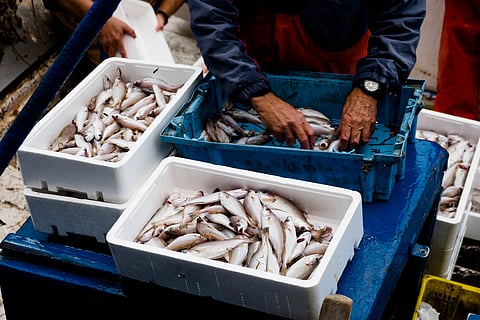

The European Commission will present the study and seek feedback on the landing obligation at an online event on 8 July, as part of its ongoing evaluation of the Common Fisheries Policy.
Photo: Adobe Stock.
The European Commission has published an independent study looking at how well the landing obligation for Europe's fishing industry is performing five years on from its implementation.
The landing obligation is a key rule under the European Union’s Common Fisheries Policy that aims to reduce waste and promote sustainable fishing. It requires fishers to land all catches of regulated commercial species, including those that are undersized or exceed quota limits, instead of discarding them at sea - thus encouraging more selective fishing and reducing bycatch and discards.
The rule was gradually introduced from 2015 and came fully into force in January 2019, prompting innovation in fishing gear, technologies and fishing practices by the European fishing industry, authorities in European member states, and scientific institutions.
However, the landing obligation "has not reached its full potential", according to the new study, published by the European Commission this week.
This is due to several "limiting factors", the study authors suggest, which include insufficient incentives for compliance by fishers, ineffective monitoring and enforcement tools, technical challenges in improving fishing gear to target selected species, and "conflicts with maintaining the economic viability of fisheries due to the loss of commercially valuable catches when increasing selectivity".
Difficult to trace impacts within fleet, fishery or sea basin
Importantly, the landing obligation is subject to a number of exemptions, such as the possibility to discard species deemed to have a high survival rate when released, the "de minimis" exemption, which allows a small percentage of unwanted catch to be discarded if avoiding these species is too costly or difficult, and situations of "force majeure", where safety concerns or damaged gear can justify exceptions.
However, the study found, the large number of available exemptions to the landing obligation made it "difficult to directly trace impacts within a fleet, fishery and sea basin".
Event on 8 July will present study and consult with stakeholders
The study, based on a combination of research methods including desk research, case studies, surveys and interviews, was launched in 2024.
The published results will now contribute to the European Commission's ongoing evaluation of the Common Fisheries Policy, including through discussions with stakeholders at an online event scheduled for 8 July. Those interested can register to attend via the European Commission website.
